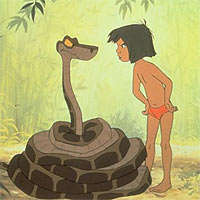Journeying on foot across this wild unchecked country, having left behind the oasis that serves the coldest beer on this remote arid island (and there having indulged in a lunchtime tipple or two) I rambled along with the sun on my face, booze in my belly and a distinctly rolling gait to my step, not unlike that of the sea-faring man back on terra firma after months walking the decks. And even with the beating sun cooking my already parboiled brain, I somehow managed to deftly avoid any untimely detonations through this holy-cowpat minefield up the side of this gentle hill.
But somehow failed to avoid the snake.
Bladder full to bursting and not a native in sight, I drunkenly lurched from the unbeaten path to offer these parched Aloe plants a much-needed drink. Initially I thought I’d stepped on a stick of sorts, my weight pushing it out from under my planted foot and shooting it across the dusty ground, but to then be punched on the shin I thought a tad peculiar, least not because I hadn't seen a single dwarf since leaving Mumbai. So I looked down. And there it was. Or there it went. This rather long, dark, shiny thing. Slithering off into the undergrowth. Leaving me alone with my thoughts. Of which there were about a thousand. Including the quite popular, "The cunt just bit me."
Immediate examination of the jeans revealed no obvious puncture holes. Heart thumping like a woodpecker on speed, I ripped my belt open, popped my fly buttons and dropped my jeans to my ankles. What horror show awaited me? What would I see on my shin? Already discolouring skin surrounding two fresh puncture marks leaking blood and lethal serum? Would it be haemotoxin or neurotoxin speeding through these doomed veins, unfairly aided by this heart working overtime to bring about an untimely death in this desolate land? Who would find me out here? Miles from help. Belly full of booze and fingers stained yellow from that particularly tasty lunch. Left to die and rot under this relentless sun. But no matter how hard I rummaged through the hairy foliage on my shin, I could see no evidence of attack. Even in my drunken paranoid state I couldn't even see anything that I could even remotely pretend could be a serpent's kiss.
And so it transpired there was no horror show for me that day. Which does not mean there was no horror show on offer. As this mini-bus jam-packed with grinning natives now charges past, being forced to slow down to take the sharp bend around a hill devoid of any architecture or life. Apart from one arse. Devoid of underwear. With a pair of balls dangling between the cheeks. Would make a marvelous target. If they had thought to pack catapults and pea-shooters. And for some reason, having quite generously exposed the rear, I am now less inclined to reveal the face. And so I remain bent over. Praying that the snake doesn't suddenly reappear and bop me on the nose as I wait for them to pass on their merry way.
Made much the merrier
By a glimpse of a chap
His balls in his lap
And a distinctly foreign derriere
It would seem that for each sprinkling of relief God grants me he also sends a deluge of horror.
Extract from The India Diaries, by Jared Kelly.

